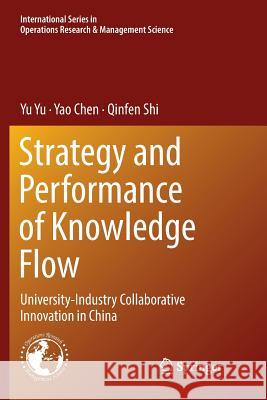Strategy and Performance of Knowledge Flow: University-Industry Collaborative Innovation in China » książka
topmenu
Strategy and Performance of Knowledge Flow: University-Industry Collaborative Innovation in China
ISBN-13: 9783030085766 / Angielski / Miękka / 2019 / 172 str.
Kategorie:
Kategorie BISAC:
Wydawca:
Springer
Seria wydawnicza:
Język:
Angielski
ISBN-13:
9783030085766
Rok wydania:
2019
Wydanie:
Softcover Repri
Numer serii:
000904291
Ilość stron:
172
Waga:
0.27 kg
Wymiary:
23.39 x 15.6 x 1.04
Oprawa:
Miękka
Wolumenów:
01
Dodatkowe informacje:
Wydanie ilustrowane











